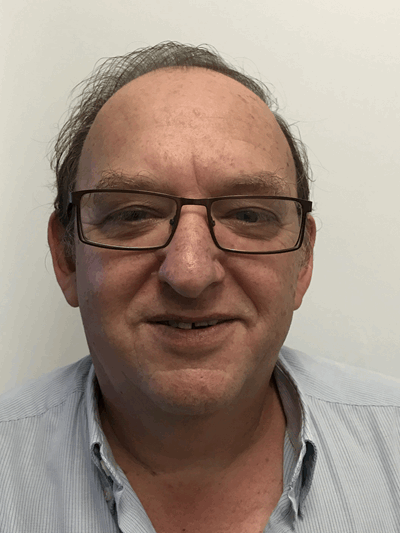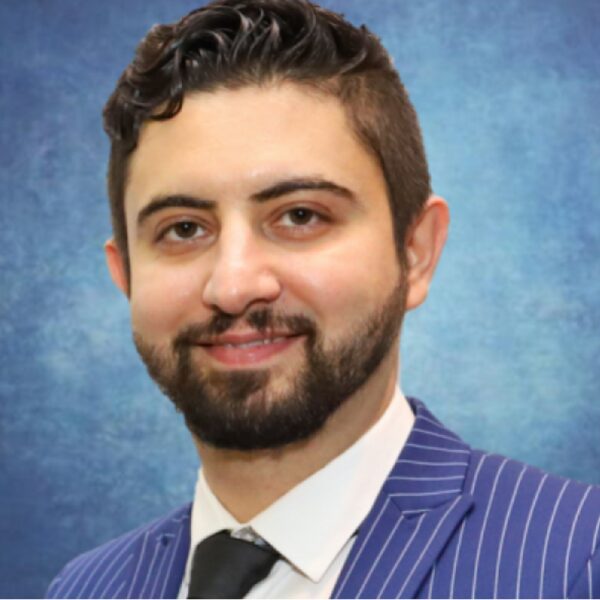Investigators
Find a Member
Results

Kalil Abdullah
Program: Cancer Therapeutics
Summary
My laboratory is focused on developing novel clinical models of glioma and identifying druggable targets to facilitate early phase clinical trials. Gliomas are intensely heterogenous tumors that not only contain numerous cell types, but also demonstrate the ability to transition between different phenotypic states. This complexity has made developing model systems that recapitulate human tumor biology both difficult and essential. Traditionally, models of gliomas are 2-dimensional cell lines and only represent certain subtypes of the highest-grade glioma, glioblastoma. This is because the…
Sameer Agnihotri
Program: Cancer Biology
Summary
The lab has a focus on several topics:1) It is now appreciated that HGG glioma comprises of several molecular subgroups and that the genetics of pediatric and adult HGG are distinct. Therefore, a one size that fits all approach to therapy will not be successful. The Agnihotri Laboratory interests include using next-generation sequencing technology to identify and validate driver alterations of various HGG with a focus on DIPG and non-histone mutated RTK Glioblastoma (GBM).2) The lab also has an interest in NF1, which encodes neurofibromin, plays a critical role in negatively regulating the…
Katherine Aird
Program: Cancer Biology
Summary
The Aird lab focuses on the reciprocal regulation between cellular metabolism and the cell cycle. The interplay between cell cycle and metabolism is bidirectional, although incompletely understood. While proliferating cells require energy and biomass, metabolites can also act as signaling molecules to impact epigenetic and transcriptional programs, thereby influencing biology beyond macromolecule needs. Our lab has made fundamental discoveries into how metabolism informs proliferative cell fate decisions by studying two extremes of proliferation: cancer and cellular senescence. Both cancer…
Oleg Akilov
Program: Cancer Immunology and Immunotherapy
Summary
Oleg E. Akilov, MD, PhD, is an Assistant Professor of the Department of Dermatology at the University of Pittsburgh and a Director of the Cutaneous Lymphoma Program and Extracorporeal Photopheresis Unit. Dr. Akilov directs Cutaneous Lymphoma Program providing the full spectrum of management of all stages of cutaneous lymphoma. He serves as a principal investigator on multiple clinical trials in cutaneous lymphoma. Additionally, Dr. Akilov is very enthusiastic about resident education and mentoring future…
Jonathan Alder
Program: Genome Stability
Summary
My research focuses on understanding the role of telomere length in human health and disease. Telomeres are caps on the ends of each of chromosomes and shorten as we age. All cancer cells must find a way to maintain their telomeres to sustain tumor growth. Our lab investigates mechanisms that tumors use to maintain their telomeres to identify potential targets for therapeutic intervention. We hope these studies will lead to a deeper understanding of how telomere maintenance contributes to cancer pathogenesis and potentially inform rational…
Daniel Altschuler
Program: Cancer Therapeutics
Summary
Dr. Altschuler's laboratory studies mechanisms of signal transduction by the second messenger cAMP in cell proliferation. cAMP-dependent protein kinase (PKA) and Exchange protein activated by cAMP (Epac) represent the main effectors of cAMP action. Both pathways converge at the level of the small GTPase Rap1b, via its Epac-mediated activation and PKA-mediated phosphorylation. The role of Rap1 activation (Epac) and phosphorylation (PKA) coordinating the early rate-limiting events in cAMP-dependent cell proliferation are studied using a multidisciplinary approach including molecular and…
Zandrea Ambrose
Program: Cancer Virology
Summary
Millions of people are infected with both HIV and HBV. Morbidity and mortality in HIV/HBV co-infection is higher than mono-infections and co-infection accelerates HBV-related liver disease with more frequent development of hepatocellular carcinoma (HCC), particularly when CD4 cell counts are low. Together with Dr. Haitao Guo, we are developing a murine model to study pathogenesis and HCC progression during HIV/HBV co-infection, which will be essential in evaluating mechanisms of infection as well as novel prevention methods, improved therapies, and curative…

Dooman Arefan
Program: Cancer Epidemiology and Prevention
Summary
Dr. Arefan's research is dedicated to developing artificial intelligence (AI)-powered diagnostic and predictive models for a variety of diseases, including breast cancer, traumatic brain injury, and hepatocellular carcinoma (HCC). His methodology harnesses both single and multimodal medical imaging data—such as X-ray/Mammography, CT, MRI, and —combined with genetic data, demographics, and other clinical records to deepen disease understanding and advance patient…
Karen Arndt
Program: Genome Stability
Summary
A fundamental question in molecular biology is how organisms interpret the vast amounts of information encoded in their genomes. The Arndt lab uses a wide range of experimental approaches to study the first step in gene expression, the synthesis of messenger RNA by RNA polymerase II, with a focus on the mechanisms that regulate transcription in the chromatin environment of a eukaryotic cell. Specific areas of interest include the mechanisms that couple histone modifications to active transcription, the coordination among different epigenetic modifications and their impact on…



